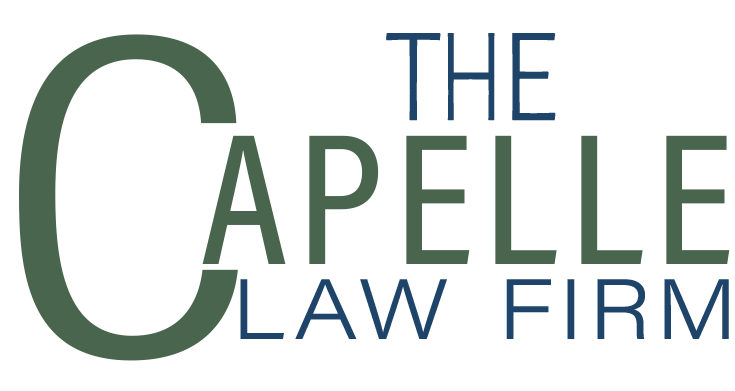Frequently Asked Questions about Estate Planning
-
What is estate planning?
Most people understand estate planning as putting together a will. You may even heard of a living trust. The terminology can be confusing, so lets look at the reasons for getting involved in "estate planning". You will find that it is a blanket term to describe how you can safely and smartly pass the assets you acquire during your life, such as financial accounts and homes, to whoever you want to have them after your passing. With effective estate planning you eliminate unneeded and messy legal problems and disputes.
-
Who needs estate planning?
You do, regardless of the size of your estate. Without adequate estate planning, you give up your opportunity to make many important decisions such as:
- You choose the person who will make health care decisions for you if you are incapacitated and not able to do so
- You name a guardian for your minor children in case of your incapacity or death
- You name a trustee to manage the assets you leave behind for your minor children and direct when and how you would like those assets distributed
- You specify how and by whom your assets will be managed if you are temporarily or permanently disabled
- You specify how and to whom your assets will be distributed when you pass.
- You eliminate unnecessary, burdensome and expensive legal disputes and court proceedings.
- You protect the property you give to your children and heirs from their creditors and others.
A good estate plan allows you to accomplish your personal and family goals for personal care and for distribution of your assets, while providing you peace of mind about the management of your financial and legal affairs. Depending on the value of your estate, some estate plans also include measures to reduce taxes and other expenses.
Having a proper estate plan is important. If the proper documents are not in place, the State of Texas will decide which family members will get your property and what amounts each will receive. This could be very different than what you really want. For example, your children or others may receive a large part of what you wanted to give to your spouse. Friends who are not related to you and charitable organizations will not get anything.
-
Can I do it myself?
Yes, technically you can do it yourself, but it is like trying to repair a problem with your car's timing belt. You can do it yourself with the help of a few training videos and some equipment, but you end up creating more risk that you would by having a mechanic put his or her expertise to work for you. And if your estate is more complex, it becomes like trying to repair your transmission on your own - not recommended.
Online or fill in the blank will forms are designed to provide cookie cutter solutions for as many people as possible wherever they live and wherever there property is located. They may be suitable for those without children, family, a home or other assets. With a form or handwritten will you run the risk that your estate will not be handled according to your wishes. Texas has very specific requirements concerning what makes a will legal and the terms used in wills. If a will does not comply with all these requirements, it can be declared invalid, and your wishes and instructions will be ignored. Even if the form is accepted, in Texas a will must contain very specific language to minimize the probate court process and legal disputes.
By doing your own estate planning, there is a chance you could misapply the law, use the wrong form, or prepare it incorrectly. Additionally, the one-size-fits-all character of a do-it-yourself plan does not take into account your unique circumstances, and consequently each of your individual estate planning needs.
And you should have a plan in place in case you are incapacitated or unable to make medical decisions for yourself.
If your circumstances allow time and opportunity to consult with an attorney, please do so. Have a Texas-licensed attorney with experience and expertise in estate planning draft a clear, properly executed will and the other documents you may need.
-
What is included in a basic estate plan?
Your plan should include at least the following:
Will - Names your heirs and bequests (who gets what), who will manage your estate, guardians for minors, how your bills will be paid, and the terms for distributing your estate either outright or in a trust.
Property or Financial Power of Attorney - Names someone to act for you if you are unable to do so. Can be fully effective when signed, or spring into effect when needed. Can be "durable" which means it can be used even if you later become incapacitated. Can be comprehensive or limited to certain transactions or circumstances.
Medical Care Power of Attorney - Names someone to make medical decisions if you cannot communicate in any way with a physician.
Living Will or Directive to Physicians - Your consent to the withholding of medical treatment if nothing further can be done. In this document, you name your spouse, family members or friends who will ultimately make this decision, rather than leaving it to the staff of a medical facility.
Health Insurance Portability and Accountability Act (HIPAA) Release - Gives someone the right to examine your medical records.
And no matter what estate plan you have, you also want to coordinate your beneficiary designations on bank accounts, investment accounts, retirement plans and insurance policies with your estate plan. We help all our estate planning clients with this.
There are additional planning tools available to you, for example, revocable and irrevocable trusts, family limited partnerships, asset protection trusts, IRA trusts and many other options. Some may be appropriate for you or not really necessary for you.
If you do not need anything beyond the basics, we will tell you that.
-
I have unmarried adult children. Should I be doing anything now for them?
Yes, you should encourage them to do some planning. At least get Financial and Property Power of Attorney forms in place, naming you as their agent. Someone contacted us recently whose child was away at college and was unexpectedly hospitalized. Without a power of attorney or HIPAA authorization, the parents could not get information about the child's medical condition. This was very upsetting and avoidable. Fortunately, the child regained consciousness the next day and had a complete recovery. The parents learned an important lesson, and took the necessary steps so this would not occur again.
-
What about IRA and retirement accounts?
Usually the beneficiaries appointed for your IRA include your spouse, children, a trust, a charity, or some other individual. The benefit of appointing your spouse or child is to allow those persons to "roll over" the IRA to their own tax-deferred account or IRA, further delaying the payment of income taxes until he or she must start taking the required minimum distributions. However, you should know that your spouse or child will have full control of this money after you die and is under no obligation to follow your wishes for naming a contingent beneficiary of the IRA when they pass away. Naming a trust as beneficiary will give you maximum control over who receives the money after you are no longer with us. The required distributions can be paid to a trust or directly to the beneficiary over the life expectancy of the oldest beneficiary of the trust. However, you should talk to your attorney or financial adviser about the implications of naming a trust as a beneficiary of an IRA because this can lead to increased tax liability. You can avoid or minimize this consequence by your instructions to your trustee in a carefully worded trust.
The Capelle Law Firm provides comprehensive estate planning services in Plano, Frisco, Collin County, Denton County and the Dallas area. Call (214) 387-6040 now to schedule a complimentary, no obligation consultation

